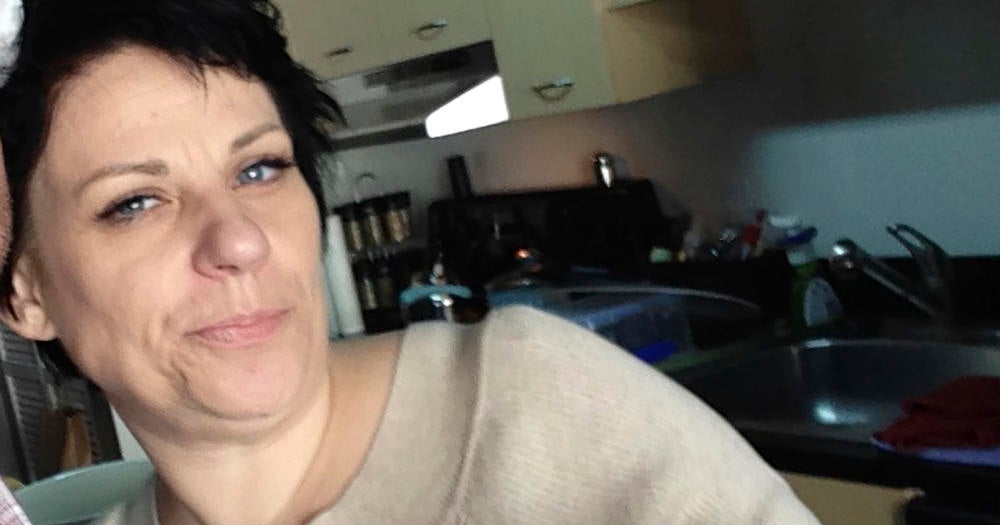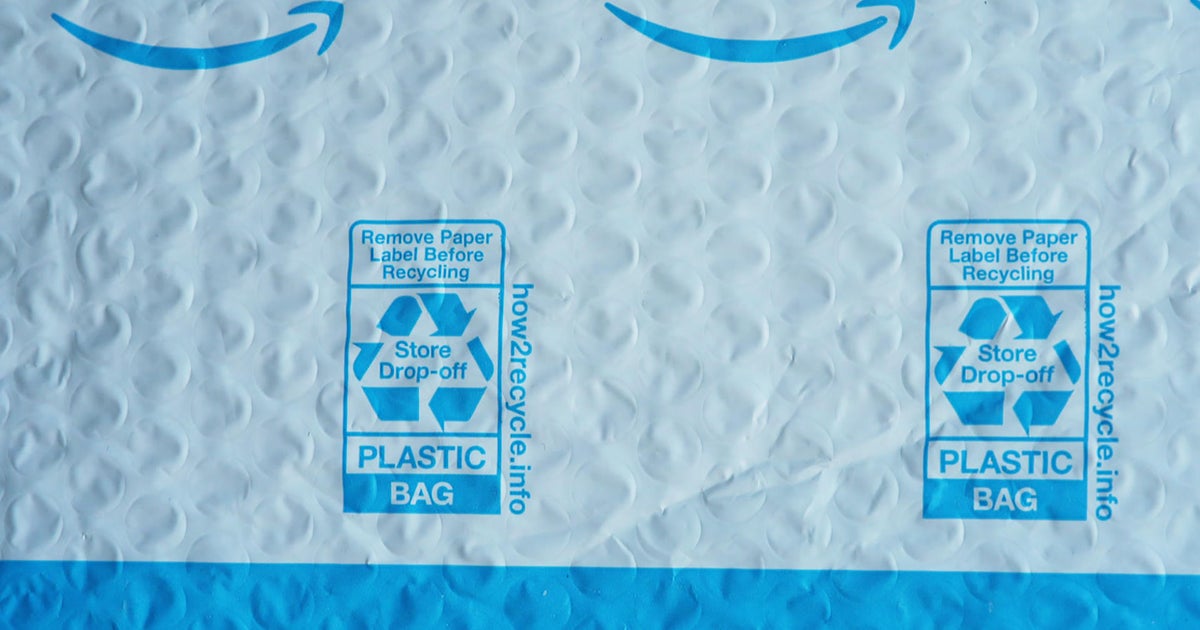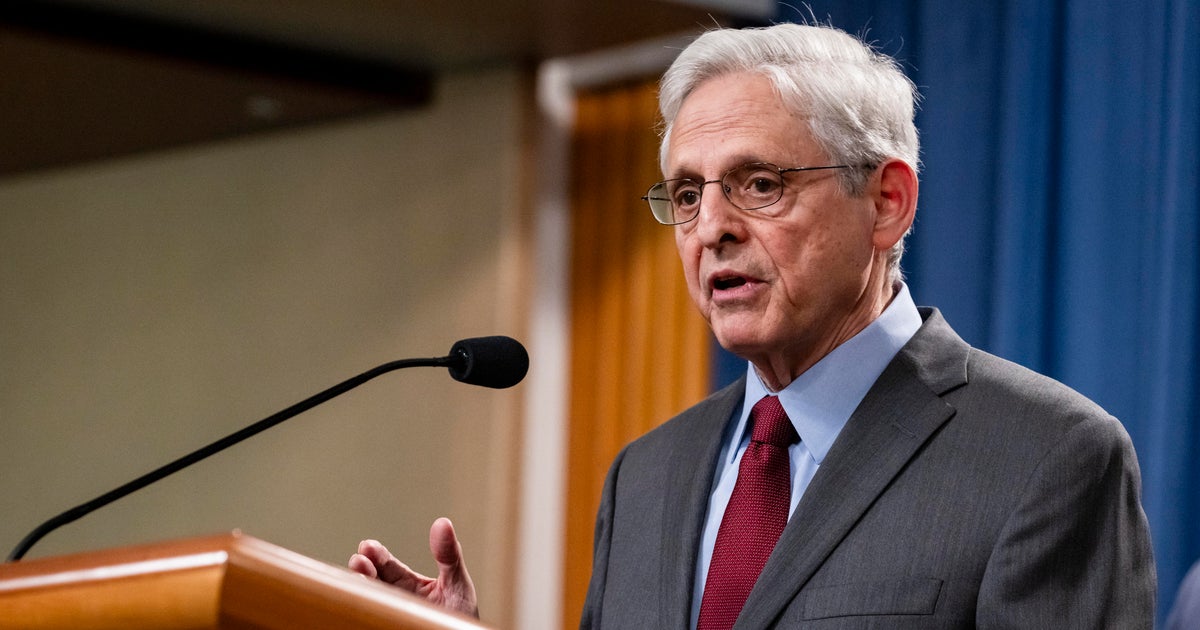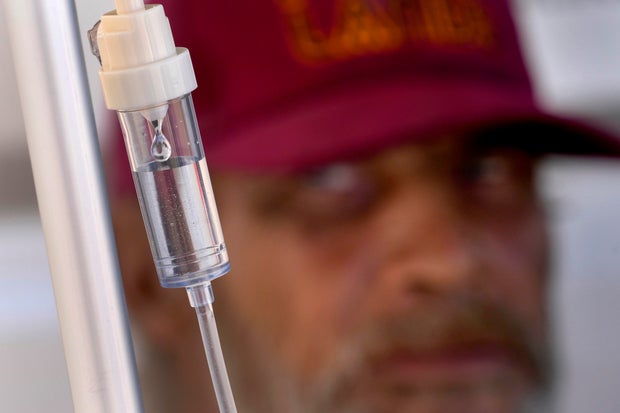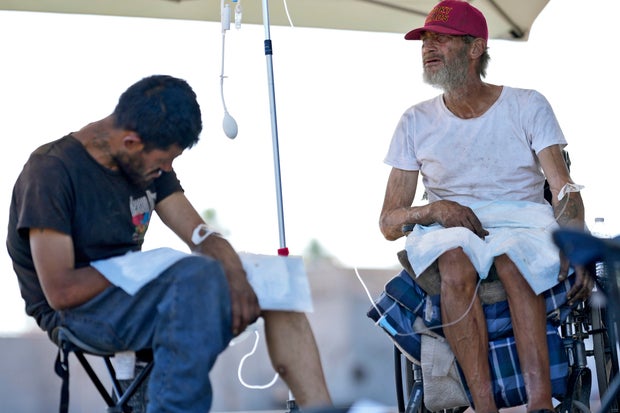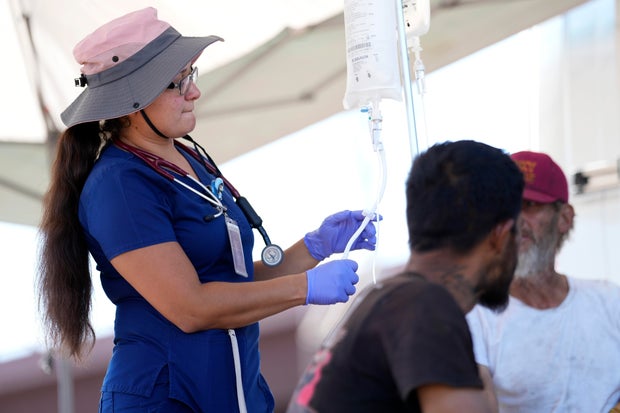CBS News
Americans lose millions of dollars each year to wire transfer fraud scams. Could banks do more to stop it?
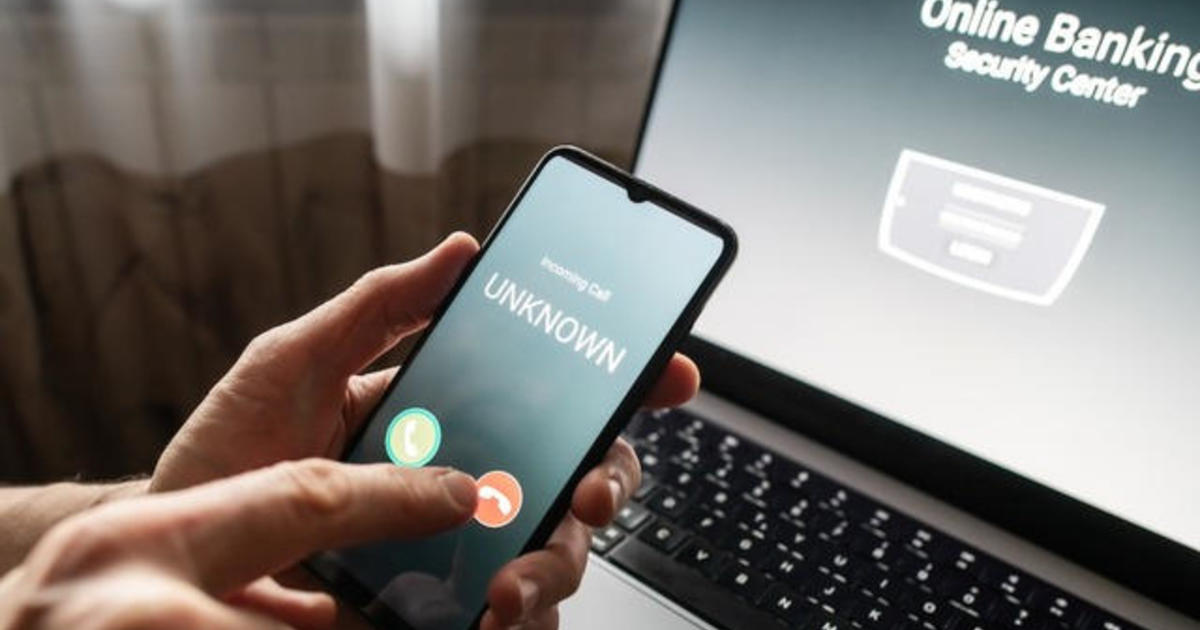
Americans are losing millions of dollars every year to criminals who steal money from their bank accounts through fraudulent wire transfers. Some U.S. senators are now pressing major banks for answers about what they are doing to stop the scammers.
In a letter to JP Morgan Chase, Citibank, Bank of America and Wells Fargo, first reported by CBS News, the Senate Banking Committee wrote, “Banks should make consumers whole for unauthorized transactions,” including “fraudulently induced transactions” like wire transfers, where “a consumer was deceived or manipulated into initiating a transfer.”
That’s what several Chase bank customers interviewed by CBS News said happened to them. New York City resident Jennifer Davis said she lost $25,000 to a wire fraud scam.
“I was horrified,” Davis said. “I was horrified. I was devastated. This was stolen from me and this is a crime.”
Andrew Semesjuk of Connecticut said he lost $15,000.
“Their job is to protect our investments,” Semesjuk said. “Otherwise, what’s the point of putting it with a bank?”
Florida resident Nikki Kelly said she lost $48,000 from a business account.
“My life has just basically been destroyed,” said Kelly.
The story of Karen Roe, another Florida resident, is typical. She was in the hospital for a medical procedure last year when her phone rang. The caller ID said Chase Bank, she said, and when she answered, a man identified himself as working for the bank.
“‘We need to verify a transaction that’s been processed on your account,'” Roe quotes him as saying.
Roe says he told her it was a $71 transaction at a Walmart in New Mexico. She told him it wasn’t her. “I said, ‘absolutely not.’ I said, ‘I’m in Orlando. I’m not in New Mexico. I haven’t been to New Mexico,'” Roe recalled.
Next, she says, the man claimed someone was trying to wire-transfer money out of her account and told her he could stop the transaction, but first he needed to verify her identity over the phone.
“He said that he was going to send an authentication code to make sure that it’s me on the other end of the phone,” Roe said.
She read him back the code, but later discovered it had not been a step taken to verify her identity. Instead, the scammers used that code to authorize a wire transfer out of her account to their own.
Roe said they stole $27,000 she’d earned from running her countertop installation business. It was gone in a matter of seconds. The theft left her stunned.
“It totally rocked my world,” Roe said.
On top of that, the crooks also stole an additional $19,000 from an account she managed for a nonprofit industry group, leaving her facing questions from members of the group as to how the theft had happened.
“That wasn’t even my money. That was the members’ money,” Roe said. “And I just was sick, was sick to my stomach.”
Chase investigated the theft and in a letter to Roe acknowledged she was “the victim of a scam.” But the bank contended the wire transfers were “authorized” and said Chase had “received calls verifying the wires as valid” with someone “providing (her) debit card number and pin,” and further said, “we processed it as you instructed.”
Roe told CBS News she feels unfairly blamed.
“They’re not taking responsibility for what is happening to their customers,” she said.
Chase told CBS News it does reimburse customers “for unauthorized transactions” if it decides a customer had no part to play in the transaction.
But in Roe’s case, and those of the other victims CBS News interviewed, Chase said it would not reimburse their money because Chase had determined their transactions were “authorized” — despite the victims reporting to law enforcement they were conned.
“They just left me high and dry,” said Davis. “i don’t understand.”
Consumer experts say the problem is the federal law that protects consumers in other banking transactions, the Electronic Funds Transfer Act, or EFTA, generally exempts wire transfers, meaning banks don’t have to reimburse those losses.
The National Consumer Law Center argues that loophole in regulations should be closed to encourage banks to tighten their security procedures.
“If they knew that they were going to be on the hook and that they were going to have to reimburse consumers, I think they would have stronger security procedures,” said NCLC senior attorney Carla Sanchez-Adams.
In a previous hearing on the subject, Senator Sherrod Brown, the chairman of the Senate Committee on Banking, Housing, and Urban Affairs, said consumers need better protection.
“It’s on the companies. People should be able to have an expectation their money is safe,” said Brown, a Democrat from Ohio.
The committee is asking the four banks to provide five years’ worth of information, including how many people reported being victims and just how much money was lost.
A CBS News analysis of consumer complaints reported to the Consumer Financial Protection Bureau shows complaints about domestic wire fraud to JP Morgan Chase were more than four times higher in 2023 as compared to 2020, going from 88 complaints to 355.
All four banks declined to comment on the Senate Banking Committee’s letter.
Chase told us it continues to “make significant investments to protect customers from fraud and scams” and help them spot tactics used by criminals.
But in testimony before the Senate last year, Chase CEO Jamie Dimon said that it was “unreasonable” to ask banks to “subsidize” criminal activity and that the government and police should do more to stop and prosecute criminals who run wire transfer fraud scams.
Chase provided CBS News with the following statement and tips for consumers:
“Consumers should always be suspicious of people asking them for passcodes, access to their device, or money to prevent fraud. Banks won’t make these requests or ask that you send money to yourself, but scammers will.” – Chase spokesperson
Scam prevention tips:
Scammers can “spoof” phone numbers. The caller ID can say the call or text is from your bank even though it’s not. They do this to trick people into providing their personal or financial information or to get them to send money
Remember, even if your caller ID says a call or text is from Chase, it could be a scam. When in doubt hang up and call us directly
If you want to be sure you are talking to a legitimate representative of your bank, call the number on the back of your card or visit a branch
Consumers should protect their personal account information, passwords and one-time passcodes
Banks will never call, text or email asking for you to send money to yourself or anyone else to prevent fraud
Always double check who you are sending money to – once you send money, you might not get it back.
To learn more about common scams and ways to protect yourself, visit: www.chase.com/security.
CBS News
Meet the designer turning classic Venetian glass into modern art

Watch CBS News
Be the first to know
Get browser notifications for breaking news, live events, and exclusive reporting.
CBS News
Minnesota Vikings rookie Khyree Jackson dies in car accident

MINNEAPOLIS — Minnesota Vikings rookie Khyree Jackson died overnight in a car accident.
The Upper Marlboro, Maryland native played for Alabama and Oregon. He was drafted by the Vikings in April in round 4 as the 108th overall pick.
He was 24 years old.
“Our thoughts are with Khyree’s family, friends, teammates and coaches, as well as all the victims of this tragic accident,” the Vikings wrote on X.
Vikings head coach Kevin O’Connell said he was “crushed” by the news of Jackson’s death.
“In our short time together, it was evident Khyree was going to develop into a tremendous professional football player, but what was more impressive was his desire to become the best person he could be for his family and those around him,” O’Connell added.
The crash happened in Upper Marlboro shortly after 3 a.m. and involved three cars, according to Maryland state police. Investigators believe the driver of a silver Infiniti car tried to change lanes at a high rate of speed and struck the car that Jackson was in, as well as a Chevrolet Impala.
The two other occupants of Jackson’s car also died in the crash. The occupants of the other cars were not hurt.
Officials believe that alcohol could have been a contributing factor in the crash.
In a statement, the Minnesota Vikings say they have offered support to Jackson’s family, and are offering counseling and emotional support to the players who seek it.
This is a developing story. Check back with WCCO.com for more.
Note: The above video first aired on June 24, 2024.
CBS News
Street medics treat heat illnesses among homeless people as temperatures rise

Alfred Handley leaned back in his wheelchair alongside a major Phoenix freeway as a street medicine team helped him get rehydrated with an intravenous saline solution dripping from a bag hanging on a pole.
Cars whooshed by under the blazing 96-degree morning sun as the 59-year-old homeless man with a nearly toothless smile got the help he needed through a new program run by the nonprofit Circle the City.
“It’s a lot better than going to the hospital,” Handley said of the team that provides health care to homeless people. He’s been treated poorly at traditional clinics and hospitals, he said, more than six years after being struck by a car while he sat on a wall, leaving him in a wheelchair.
Circle the City, a non-profit that works in multiple cities and hospitals and treats about 9,000 people annually, introduced its IV rehydration program as a way to protect homeless people in Phoenix from life-threatening heat illness as temperatures regularly hit the triple-digits in America’s hottest metro.
Matt York / AP
Homeless people accounted for nearly half of the record 645 heat-related deaths last year in Maricopa County, which encompasses metro Phoenix. As summers grow warmer, health providers from San Diego to New York are being challenged to better protect homeless patients.
Dr. Liz Frye, vice chair of the Street Medicine Institute which provides training to hundreds of healthcare teams worldwide, said she didn’t know of groups other than Circle the City administering IVs on the street. The organization also distributes tens of thousands of water bottles each summer and tries to educate people about hot weather dangers.
“But if that’s what needs to happen to keep somebody from dying, I’m all about it,” Frye said.
Bringing care to people in need
The amount of people requiring treatment for heat illnesses is rising. The Boston Health Care for the Homeless Program, featured in last year’s book, “Rough Sleepers,” now sees patients with mild heat exhaustion in the summer after decades of treating people with frostbite and hypothermia during the winter, said Dr. Dave Munson, the street team’s medical director.
“It’s certainly something to worry about,” said Munson, noting that temperatures in Boston hit 100 degrees with 70% humidity during June’s heat wave. Homeless people, he said, are vulnerable to very hot and very cold weather not only because they live outside, but they often can’t regulate body temperature due to medication for mental illness or high blood pressure, or because of street substance use.
The Phoenix team searches for patients in homeless encampments in dry riverbeds, sweltering alleys and along the canals that bring water to the Phoenix area. About 15% are dehydrated enough for a saline drip.
Matt York / AP
“We go out every day and find them,” said nurse practitioner Perla Puebla. “We do their wound care, medication refills for diabetes, antibiotics, high blood pressure.”
Puebla’s street team ran across Handley and 36-year-old Phoenix native Phillip Enriquez near an overpass in an area frequented by homeless people because it’s near a facility offering free meals. Across the road was an encampment of tents and lean-tos along a chain-link fence.
Enriquez sat on a patch of dirt as Puebla started a drip for him. She also gave him a prescription for antibiotics and a referral to a dentist for his dental infection.
Living outside in Arizona’s broiling sun is hard, especially for people who may be mentally ill or use sedating drugs like fentanyl that make them less aware of their surroundings. Stimulants like methamphetamine contribute to dehydration, which can be fatal. Dr. Matt Essary, who works with Circle in the City’s mobile clinics, said the organization also often treats surface burns that can happen when a medical emergency or intoxication causes someone to fall on a sizzling sidewalk.
Matt York / AP
Temperatures this year have reached 115 degrees in metro Phoenix, where six heat-related deaths have been confirmed through June 22. Another 111 are under investigation, and the city is seeing an “increasing” number of patients with heat illnesses every year, according to Dr. Aneesh Narang, the assistant medical director of emergency medicine at Banner Medical Center-Phoenix, which treats many homeless people with heat stroke.
Narang’s staff works frequently with Circle the City, whose core mission is providing respite care, with 100 beds for homeless people not well enough to return to the streets after a hospital stay.
Extreme heat worldwide requires a dramatic response, said physician assistant Lindsay Fox, who cares for homeless people in Albuquerque, New Mexico, through an initiative run by the University of New Mexico’s School of Medicine.
Three times weekly, Fox treats infections, cleans wounds and manages chronic conditions in consultation with hospital colleagues. She said the prospect of more heat illness worries her.
Highs in Albuquerque can hit the 90s and don’t fall enough for people living outside to cool off overnight, she said.
“If you’re in an urban area that’s primarily concrete, you’re retaining heat,” she said. “We’re seeing heat exposure that very quickly could go to heat stroke.”
Serious heat stroke is far more common in metro Phoenix, where Circle the City is now among scores of health programs for the homeless in cities like New York, San Diego and Spokane, Washington.
Circle the City works with medical staff in seven Phoenix hospitals to help homeless patients get after-care when they no longer need hospitalization. It also staffs two outpatient clinics for follow-up.
Rachel Belgrade waited outside Circle the City’s retrofitted truck with her black-and-white puppy, Bo, for Essary to write a prescription for the blood pressure medicine she lost when a man stole her bicycle. She accepted two bottles of water to cool off as the morning heat rose.
“They make all of this easier,” said Belgrade, a Native American from the Gila River tribe. “They don’t give you a hard time.”



